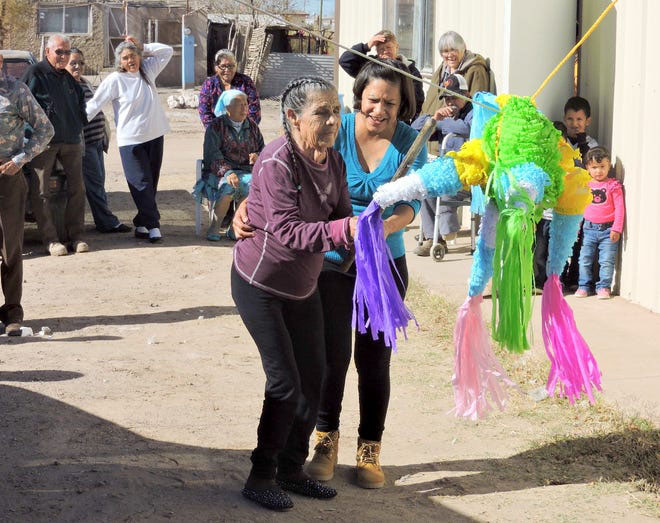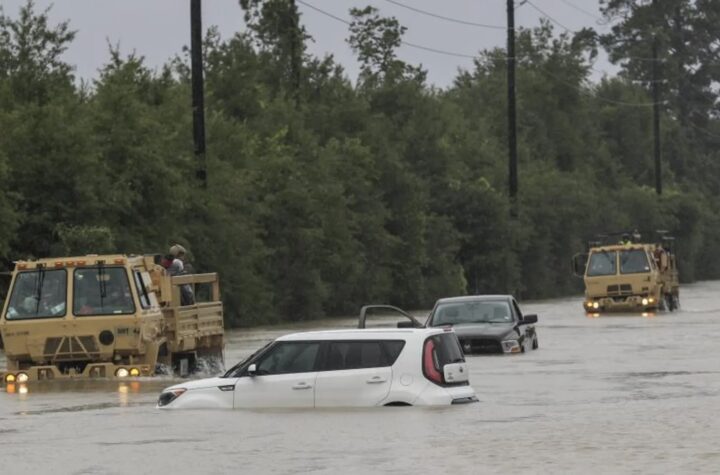
OUR BORDER TOUR
Morgan Smith / [email protected]
Haga click aquí para leer la versión en español
Our tour begins in Hatch, New Mexico at Pepe’s Cantina where we meet Pedro, a migrant from Guatemala. Several months before he was in a shelter in Palomas, Mexico with broken feet from a fall off the border wall. He was deported and it seemed like he would have to return to Guatemala but thanks to volunteers in Palomas and Deming, especially a young woman named Sandra Magallanes, he was able to return to the United States, is receiving good medical attention and living in Hatch with Corina Barrera, her son, Thomas and their family.
It is a miracle for him and an extraordinary testimony to humanitarians like Magallanes and the Barrera family. We crossed the border at Santa Teresa and stopped at Guardia Nacional checkpoint. This is the plan of Mexico’s President, Andrés Manuel López Obrador ( better known as AMLO) – to send 1,500 soldiers to Juárez to control the horrendous number of murders. There were 650 murders in Juárez in the first five months of 2021 compared to only 213 in the much larger New York City in its first six months.
Is this an effective strategy? Don’t the murders happen within the city instead of here on the outskirts? Wouldn’t it be better to have police instead of soldiers who have no experience with criminal investigations? Then we gave oranges and apples to Tarahumara kids at the Tarahumara school. The first time we did this, it seemed that they had never seen nor eaten fruit.
At Vision in Action, the asylum for people with mental illnesses that we’ve been helping for many years, we inspected a recently completed room for eight older women patients with dementia. One woman named Socorro seemed ten years younger and much more animated and happier than before.
Her nurse was named Dulce Maria Molina. The combination of the new living area away from the male patients and Dulce’s care has changed the lives of these patients. Monday morning, Labor Day we crossed the border at Palomas, Mexico to visit Border Partners, a nonprofit organized in November 2008 that has a huge range of programs in Palomas.
- Training “promotoras” to provide basic medical care, especially for pregnant women.
- Health fairs and exercise classes.
- Giving out masks and school supplies to students,
- A gardening program.
- Installing computers in the school and giving classes.
- Delivering hot meals to seniors and the disabled.
We met Juan Rascón, their Palomas representative and Melissa Reyes, the General Manager when they and their team were loading three trucks with food for three small towns to the south, El Modelo, El Entronque and Victoria. They go twice a month with 1000 crates loaded with basics like potatoes, beans, noodles, eggs, cereal, instant milk, toilet paper, cans of barley for soup, hand wipes. This time they also took school supplies and T shirts for the kids.
Our ruck went to El Entronque where a line of recipients had formed, all wearing masks. It was an emotional moment because Border Partners is effectively doing what the government ignores. These are powerful humanitarian forces. They may not receive much publicity, but they make an enormous difference in the lives on the frontier.






otras noticias
Digital Calendar – May 2024
COVID-19 Affected Individuals Live with its Effects
The gorillas of AMLO